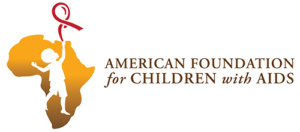Bulawayo, Zimbabwe ~
Primrose. Precious. Blossom.
All names that describe the beautiful girls at horse therapy I meet today. All of them with cerebral palsy and all of them affected slightly differently by it. Some of the children here today are very verbal, others can’t speak at all. Some can’t walk and must be carried and placed on their horse, with a person walking the horse and a coach on each side. Some are able to hold themselves up. I walk besides those because I am just learning.
I observe Jill, the lady who runs this therapeutic program and I immediately pick out things I want to learn from her, which I want to place inside me so I, too, can show kindness as she does. She knows each and every child by name and addresses them not only by name, but with an endearment, as well. “How are you today, my girl? Are you well, Primrose?” Primrose lets her know she is fine and that she is ready to get on her horse. No easy task, but it is done with care and dignity.
Jill not only knows names, though. She knows likes, dislikes, preferences, abilities, and fears. She, ever so gently, moves around the group, stroking horses while telling the children what she expects of them. Each expectation is different and each is set for that particular child. She has them hold out hands to stretch out muscles that often refuse to budge. She encourages with a simple, “Henry, you are looking very strong today. Well done, lad”. As the half hour session draws to a close, she walks to each child and horse pair and gives high fives to the children, waiting patiently while some struggle, but always smiling and encouraging when their palms meet.
Bright eyes turn to her, full of smiles and happiness, as she calls out the names of the second group who will ride today. Little bodies which had been unable to sit up on their own a year ago are placed on the back of gentle horse, all under the watchful eye of Jill. She explains to me how she needs to see me at all times, so I must walk on the inside of the ring, with my child to my left. My arm must be placed just so and if the horse starts running for some reason, my first responsibility is the child. Nothing else matters at that time. The child comes first. At the same time, Jill asks me to watch the horse and make sure she is comfortable. If I notice that the horse is hurting in any way, I am to let the handler know so that the animal can be cared for. I feel great responsibility and I take it seriously. I hope my child won’t fall and she doesn’t. Instead, she sits as high as she can and reaches to the sky when Jill asks the children to do just that. Some kids reach as far as they can, not far at all, but it is the sky in Jill’s eyes, and she lets them know that they are doing a fine job.
We go round and round, following commands and I feel little bodies growing tired. Their faces, though, shine with determination and they complete their 30 minutes, exhausted and proud.
I think to myself that if we, as humans, can just learn to treat each other with the dignity shown to these children, our world would be a nicer, gentler, kinder place. If we put others in front of us, and their safety first, we’d all better for it. If each of us would treat animals and people with the kindness I see Jill exhibiting now, we will all be richer because those same kindnesses would come back to us.
I am here taking a break from grant writing and sure don’t want to go back to that.

